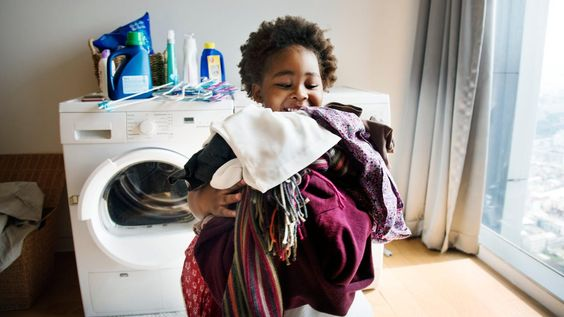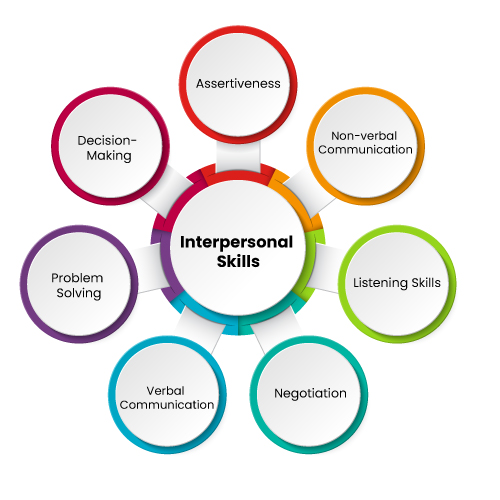Is your child articulate and socially skilled? Is your child financially literate? Is your child aware of the importance of mental and physical health? If your response is yes, your child is equipped with life skills; if not, they must be schooled in these vital skills.
Getting ready for adulthood isn’t just about graduating to higher grades. It’s also about learning important life skills. These life skills help kids in solving problems, tackling situations, and becoming independent.
Let’s talk about 15 really important skills every kid should know before they grow up and leave home.
Section 1: Basic Life Skills

Basic life skills are things you need to know how to do to take care of yourself and get through daily life. It’s like knowing how to cook, clean, handle money, and look after your own well-being. These skills help you be independent and lead a good life on your own.
1. Cooking and Meal Preparation:
Teaching children how to prepare simple meal ensures they can feed themselves healthily when they’re on their own.
2. Laundry and Clothing Care:
Knowing how to do laundry and care for their clothes ensures they always look presentable and well-groomed.
3. Cleaning and Household Maintenance:
Keeping living spaces tidy and well-maintained is essential for a hygienic, organized and healthy lifestyle.
Section 2: Financial Literacy:

Financial literacy means understanding and knowing how to manage money wisely. It involves knowing how to budget, save, invest, and make smart financial decisions. Financial literacy helps you make the most of your money and plan for the future. It’s like having the knowledge and skills to handle your finances well.
1. Budgeting and Money Management:
Understanding how to create and stick to a budget helps in managing finances wisely.
2. Understanding Bills and Expenses:
Teaching kids about bills and expenses prepares them for financial responsibilities in adulthood.
3. Basic Banking and Saving:
Introducing them to banking and saving helps instill smart money habits early on.
Section 3: Personal Care and Well-being
Personal care is a broad term that encompasses important aspects such as physical and mental health, happiness and prosperity, emotional and psychological well-being.
This includes ensuring good hygiene, eating healthy, getting enough sleep, and caring for mental and emotional health. It’s about looking after your body and mind so that you can live your best.
1. Health and Hygiene:
A healthy routine life that prioritizes eating, sleeping, and regular exercise. Encourage proper personal hygiene and the importance of regular exercise for their well-being.
A hygienic lifestyle for children includes daily tooth brushing and bathing, as well as washing hands. It also includes manners such as covering one’s nose and mouth when coughing or sneezing and cleaning one’s mouth after each meal.
2. Time Management and Organization:
Teach them how to manage their time efficiently, prioritize tasks, and stay organized. Time management is key to a successful and stressfree life. If children will learn to manage their time well, they are neither overworked nor anxious.
3. Basic First Aid and Safety:
Equipping them with basic first aid skills and safety knowledge ensures they can handle emergencies.
Section 4: Communication and Interpersonal Skills
Communication and interpersonal skills are about how you talk to and get along with other people. It’s like being able to say what you mean and understand what others are saying. It also means being good at working together and solving problems with others. These skills help you make friends and get along well with people.


1. Effective Communication:
The process of expressing ideas, facts, knowledge, and so on that have been received and understood in a clear and purposeful manner. Encourage clear and respectful communication to build positive relationships.
2. Conflict Resolution and Problem-Solving:
Conflicts are common. For example, children might have disagreements with their peers, friends, or siblings. Teach them how to resolve conflicts constructively and tackle problems methodically.
3. Empathy and Compassion:
Empathy is a vital life skill since it indicates that you are a good listener and can put yourself in the shoes of others and grasp their problems from their point of view.
- Empathy is also a step towards innovation.
- Foster empathy and compassion in children to help them understand and support others.
Section 5: Independence and Critical Thinking.
Independence means being able to do things on your own without always needing help. It’s about being responsible for yourself and making your own choices.
Critical thinking means looking at things carefully, thinking about different ways to solve a problem, and making smart decisions based on what you know. It’s an important skill for figuring things out on your own.
1. Navigating Public Transport:
Ensure they can safely and confidently use public transportation when needed.
2. Basic Home Repairs and DIY Skills:
Introduce them to basic home repairs and DIY tasks, promoting self-sufficiency.
3. Self-Advocacy and Decision Making:
Empower them to express their needs and make informed decisions confidently.
Just keep in mind that these activities should be seamlessly integrated into the daily routine. They are not something that must be learned individually. In this manner, children will learn life skills without feeling stressed or having to make extra effort.
Moonpreneur is on a mission to disrupt traditional education and future-proof the next generation with holistic learning solutions. Its Innovator Program is building tomorrow’s workforce by training students in AI/ML, Robotics, Coding, IoT, and Apps, enabling entrepreneurship through experiential learning.

























How should I teach kindness activities to my preschool kids?
If you want to teach kindness activities to preschoolers, start encouraging your children to be involved in these activities: